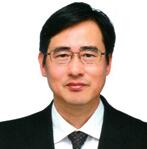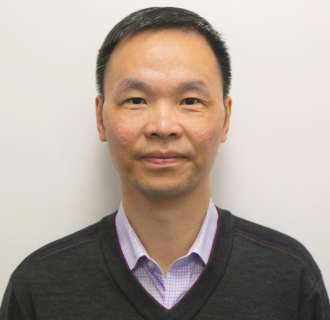Keynote Speakers
Qixin Guo
Professor of Department of Electrical and Electronic EngineeringDirector of Synchrotron Light Application Center, Saga University, Japan
Speech Title: Epitaxial growth and characteristics of gallium oxide based ultrawide bandgap semiconductors
Abstract: The Si based technologies were spawned by the demonstration of the first transistor. Until the early 1990s, semiconductor technologies were limited to Si and the conventional III-V compounds such as GaAs and GaP which have relatively narrow bandgap of less than 2.3 eV. The ultrawide bandgap semiconductors in-cluding Ga2O3, Diamond, and AlN which have bandgaps significantly larger than the 3.4 eV of GaN had proven extremely challenging to develop, despite their obvious potential advantages for optoelectronics and higher breakdown voltages for power electronics. The success in obtaining high quality β-Ga2O3 bulk sub-strates has positioned this material as a strong candidate for next-generation devices such as ultraviolet light emitting diode and photodetector. A wider bandgap range is of great merit as it allows the design of devices such as high sensitive wavelength-tunable photodetectors, cutoff wavelength-tunable optical filters in more broad range. Al is a candidate to enlarge the bandgap of Ga2O3 because Al2O3 has a larger bandgap (~8.8 eV) and the similar electron structures of Al and Ga makes the alloy (AlGa)2O3 possible. In this talk, we will report on the growth and characterization of these films. Ga2O3 based oxide films were deposited on (0001) sapphire substrates by oxygen plasma assisted pulsed laser deposition. We have demonstrated that the bandgap energy of the (AlGa)2O3 films can be tailored by controlling the Al contents in the films at the growth temperature as low as 200℃. Recent progress on the growth of these ultrawide oxide semiconduc-tors will also been reported.
Biography: Prof. Dr. Guo received B. E., M.E., and Dr. E degrees in electronic engineering from Toyohashi University of Technology in 1990, 1992, and 1996, respectively. He is currently a Professor of Department of Electrical and Electronic Engineering, Saga University as well as Director of Saga University Synchrotron Light Application Center. His research interests include epitaxial growth and characterization of semiconductor materials. Prof. Guo has published more than 300 papers in scientific journals including Nature Communications, Advanced Materials, Physical Review B, and Applied Physics Letters with more than 6000 citations (h-index: 41)
Huiyu (Joe) Zhou
Professor, School of Informatics, University of Leicester, United KingdomSpeech Title: Artificial Intelligence in Health Care
Abstract: In this talk, I will introduce the concept of artificial intelligence (AI) and its uses. Then, I discuss the current public opinion on AI and its hype. I also present the regulation of AI in the community, followed by the discussion on challenges in the field. Finally, I predict the future work in AI using a few examples.
Biography: Dr. Huiyu Zhou received a Bachelor of Engineering degree in Radio Technology from Huazhong University of Science and Technology of China, and a Master of Science degree in Biomedical Engineering from University of Dundee of United Kingdom, respectively. He was awarded a Doctor of Philosophy degree in Computer Vision from Heriot-Watt University, Edinburgh, United Kingdom. Dr. Zhou currently is a Professor at School of Informatics, University of Leicester, United Kingdom. He has published over 300 peer-reviewed papers in the field. He was the recipient of "CVIU 2012 Most Cited Paper Award", “MIUA 2020 Best Paper Award”, “ICPRAM 2016 Best Paper Award” and was nominated for “ICPRAM 2017 Best Student Paper Award” and "MBEC 2006 Nightingale Prize". Dr. Zhou serves as the Editor-in-Chief of Recent Advances in Electrical & Electronic Engineering and Associate Editor of "IEEE Transaction on Human-Machine Systems" and “IEEE Access”, and Area Chair of IJCAI and BMVC. He is one of the Technical Committee of “IEEE Cognitive and Development Systems”, “Information Assurance & Intelligent Multimedia-Mobile Communication in IEEE SMC Society”, “Robotics Task Force” and “Biometrics Task Force” of the Intelligent Systems Applications Technical Committee, IEEE Computational Intelligence Society. He has given over 90 invited talks at international conferences, industry and universities, and has served as a chair for 60 international conferences and workshops. His research work has been or is being supported by UK EPSRC, MRC, EU, Royal Society, Leverhulme Trust, Puffin Trust, Alzheimer’s Research UK, Invest NI and industry.

